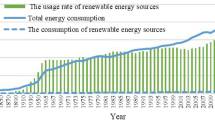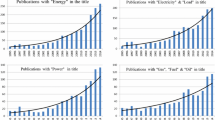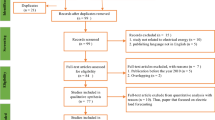Abstract
Load forecasting is necessary for economic generation of power, economic allocation between plants (unit commitment scheduling), maintenance scheduling, and for system security such as peak load shaving by power interchange with interconnected utilities. A novel hybrid load forecasting algorithm, which combines the fuzzy support vector regression method and the linear extrapolation based on similar days method with the analysis of temperature sensitivities is presented in this paper. The fuzzy support vector regression method is used to consider the lower load-demands in weekends and Monday than on other weekdays. The normal load in weekdays is forecasted by the linear extrapolation based on similar days method. Moreover, the temperature sensitivities are used to improve the accuracy of the load forecasting in relation to the daily load and temperature. The result demonstrated the accuracy of the proposed load forecasting scheme.
Similar content being viewed by others
References
Chun FL, Sheng DW (2003) Training algorithms for fuzzy support vector machines with noisy data. In: IEEE XIII workshop on neural networks for signal processing, pp 517–526
Dug HH and Changha H (2003). Support vector fuzzy regression machines. Fuzzy Sets Syst 138: 271–281
Gong DC, Li XM and Li LF (2005). Short-term load forecast based on fuzzy support vector machine method. Electric Power Autom Equip 25: 41–43
Gwo CL and Ta PT (2004). Application of fuzzy neural networks and artificial intelligence for load forecasting. Electr Power Syst Res 70: 237–244
Kang CQ, Xia Q and Zhang B (2004). Review of power system load forecasting and its devenlopment.. Autom Electr Power Syst 28: 1–11
Kwang HK, Jong KP, Kab JH and Sung HK (1995). Implementation of hybrid short-term load forecasting system using artificial neural networks and fuzzy expert system. IEEE Trans Power Syst 10: 1534–1539
Kyung BS, Young SB, Dug HH and Gilsoo J (2005). Short-term load forecasting for the holidays using fuzzy linear regression method. IEEE Trans Power Syst 20: 96–101
Kyung BS, Seong KH, Jung WP, Dong JK and Kyu HK (2006). Hybrid load forecasting method with analysis of temperature sensitivities. IEEE Trans Power Syst 21: 869–876
Li XM, Gong DC, Li LF and Sun CY (2005). Next day load forecasting using SVM. Adv Neural Netw ISNN 2005(3498): 634–639
Mo W, Zhang B, Sun H and Hu Z (2004). Method to select similar days for short-term load forecasting. J Tsinghua Univ (Sci Tech) 44: 106–109
Paras M, Tomonobu S, Naomitsu U and Toshihisa F (2006). A neural network based several-hour-ahead electric load forecasting using similar days approach. Electric Power Energy Syst 28: 367–373
Xu JD, Ding XQ and Deng Y (2005). Short-term load forecast using linear extrapolation based on similar historical day data. RELAY 33: 37–39
Author information
Authors and Affiliations
Corresponding author
Rights and permissions
About this article
Cite this article
Sun, C., Song, J., Li, L. et al. Implementation of hybrid short-term load forecasting system with analysis of temperature sensitivities. Soft Comput 12, 633–638 (2008). https://doi.org/10.1007/s00500-007-0252-1
Published:
Issue Date:
DOI: https://doi.org/10.1007/s00500-007-0252-1




